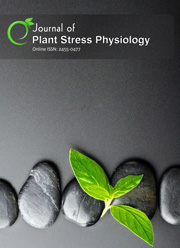Growth performance and nutritional quality of selected vegetables in response to organic and inorganic fertilizers under low and high irradiance
DOI:
https://doi.org/10.25081/jpsp.2021.v7.6487Keywords:
Light intensity; Organic amendments; Vegetables; Secondary metabolites; Nutrients and VitaminsAbstract
Vegetables form major part of human dietary/nutritional needs. It provides the necessary vitamins and minerals as well as antioxidants to boost immunity. Different vegetables however have different benefits and require different growing conditions. This study investigated the effect of two growing conditions (Screen-house and open field) and soil amendments; Mexican sunflower compost (MSC; applied at 0, 5, 10 t/ha) and NPK 15:15:15 (applied at 0, 50 and 100 kg N/ha) on the growth performance, yield, and nutritional quality of five selected vegetables (Amaranthus cruentus, Celosia. argentea, Solanum macrocarpon, Solanum nigrum and Solanum incanum). Each treatment was replicated three times and experiment arranged in completely randomized design, Compost was applied a week before seed sowing vegetables grown in the screen-house generally performed better than the open field in terms of leaf area and chlorophyll content. The response however varied based on the vegetable and the soil amendments. Solanum species, performed better than Amaranthus under screen-house than open field. Chlorophyll in the leaf responded positively to NPK fertilizer under screen-house conditions while growth parameters such as plant height, stem girth, number of leaves under screen-house and field conditions varied depending on the vegetables. The number of leaves and leaf area increased with soil amendments. Moisture, crude protein and ash contents were reduced under open field compared to screen-house. The zinc and iron contents of the vegetable leaves showed that addition of compost was superior to NPK and screen-house better than open field. It can be concluded that vegetables grown in the screen-house performed better in their respective growth parameters than vegetables are grown under the open field.



 .
.